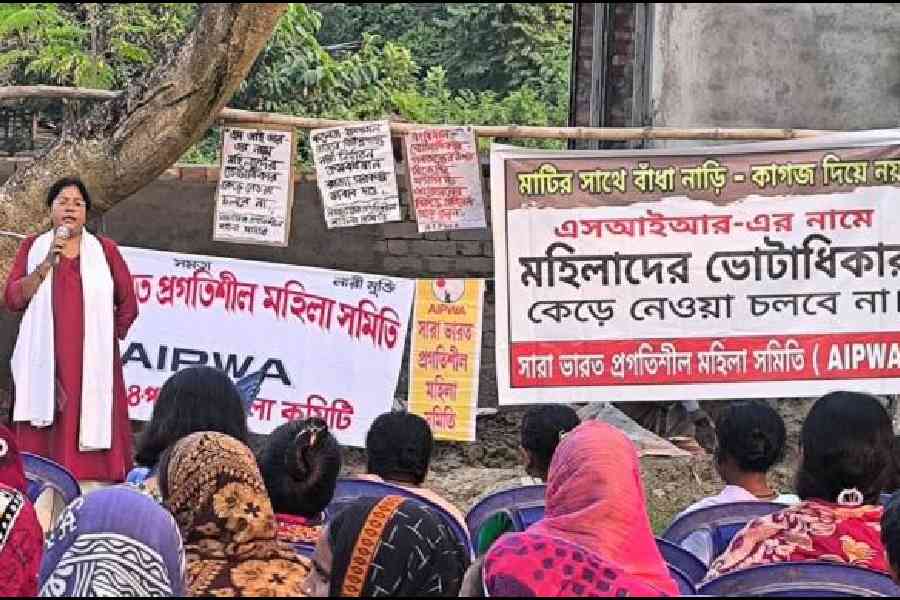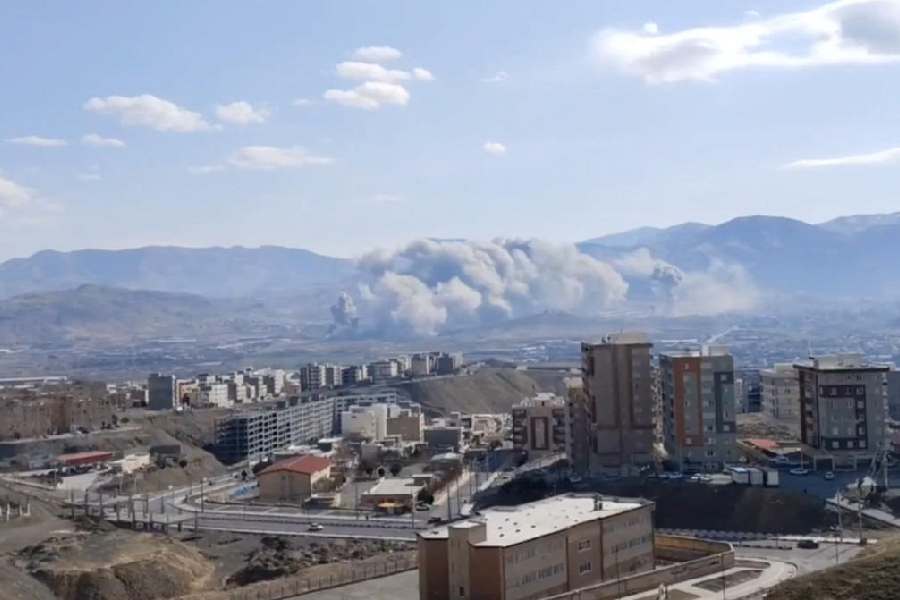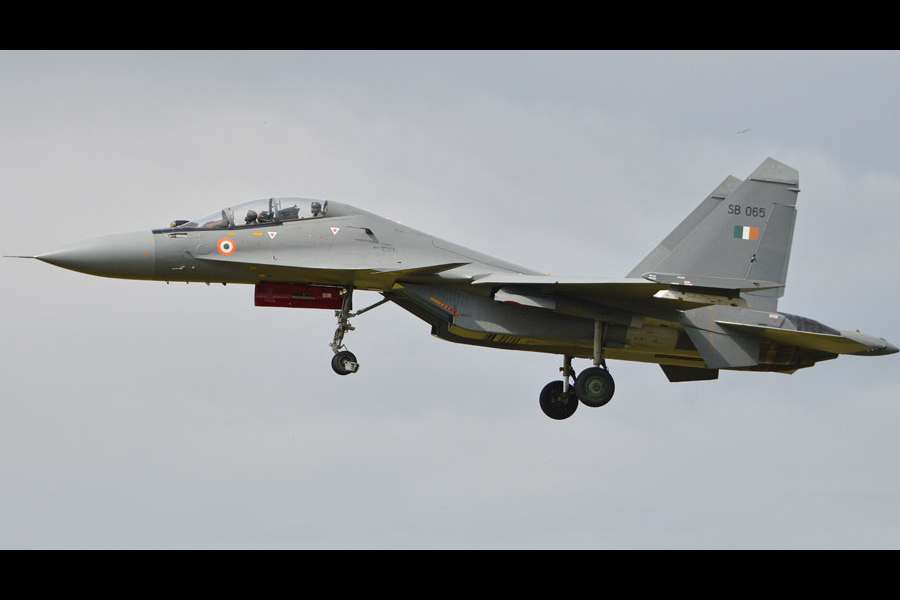The ongoing special intensive revision of electoral rolls in Bengal has rendered marginalised women more susceptible due to a deficiency of resources and a prevailing societal bias.
A women’s organisation has been organising camps in Calcutta slums and in villages in neighbouring districts to help women deal with the exercise. They have experienced first-hand a grim reality — that any large-scale exercise based on documentation threatens people living in the margins, but most affected are the women.
The historic and ongoing exclusion of women from property deeds, land documents, and inheritance has amplified the problem. Many women have been disowned by their families because of marrying against their wishes. Many of these women are illiterate. Many others attended school but did not complete Class X. Most of them don’t have birth certificates.
The All-India Progressive Women’s Association (AIPWA), the women’s wing of the CPI (ML) Liberation, has organised camps for women in slums in the Dhakuria, Jadavpur and Bagha Jatin areas of south Calcutta, as well as in districts like Hooghly, North 24-Parganas and East Burdwan.
“When the draft electoral rolls were published in Bihar, around 65 lakh voters were left out. A majority of them were women. We started the camps in Bengal against this backdrop. So far, our experience in Bengal suggests a similar pattern. We are scared that when the draft rolls are published for Bengal, the percentage of women left out could be more than what it was in Bihar,” said Chandrasmita Chowdhuri, Calcutta district secretary of the association.
At a village near Bainchi railway station in Hooghly, a woman in her mid-forties told volunteers of AIPWA that she was a minor when she got married. Her parents have died, and her brothers have snapped all ties with her.
“They do not want to share any ancestral properties with me. That is why they won’t let me anywhere near the house,” she said.
The woman was not born in the hospital and did not finish Class X. She is extremely worried because there is nothing that can prove her relationship with her father, even if his name is on the 2002 rolls.
At another village in the same district, a woman was discarded by her parents when she married a man from another community.
A woman in a slum off the Prince Anwar Shah Road connector shared the same plight.
These women do not have most of the documents that the authorities have named for verification. But even if they have some at their father’s home, they cannot access the papers.
Lack of resources
A group of women in a rural area of Naihati in North 24-Parganas makes a living by peeling the rubber cords off discarded tyres so they can be used otherwise. They get ₹20 for a kilo of peeled cords.
“The work is so gruelling. There are additional domestic responsibilities. The women hardly get time or anything else. But despite that, hundreds came to listen to us. It shows the scale of the fear (surrounding the SIR) in their minds,” said Mitali Biswas, a member of AIPWA who was instrumental in organising the camps.
At another village in Shibdaspur, North 24-Parganas, inhabited by several tribal families, the land pattas serve as a form of identification. But the papers are in the name of the men. The women, mostly unlettered, have an additional problem.
“Many of them go to the southern parts of India in the rice harvest season this time of the year. They are in a fix. They will suffer a loss of income if they don’t go. But the fear of being left out of the electoral rolls is also there,” said Biswas.
Wrath of nature
Many families from South 24-Parganas live in rented accommodations at slums in Jadavpur, Bagha Jatin and Dhakuria.
“At some of these homes, we came to know that the government documents were lost in cyclones. But the irony is that the men in the families have been proactive in getting duplicate copies for themselves. About women, they have been reluctant,” said a volunteer.











